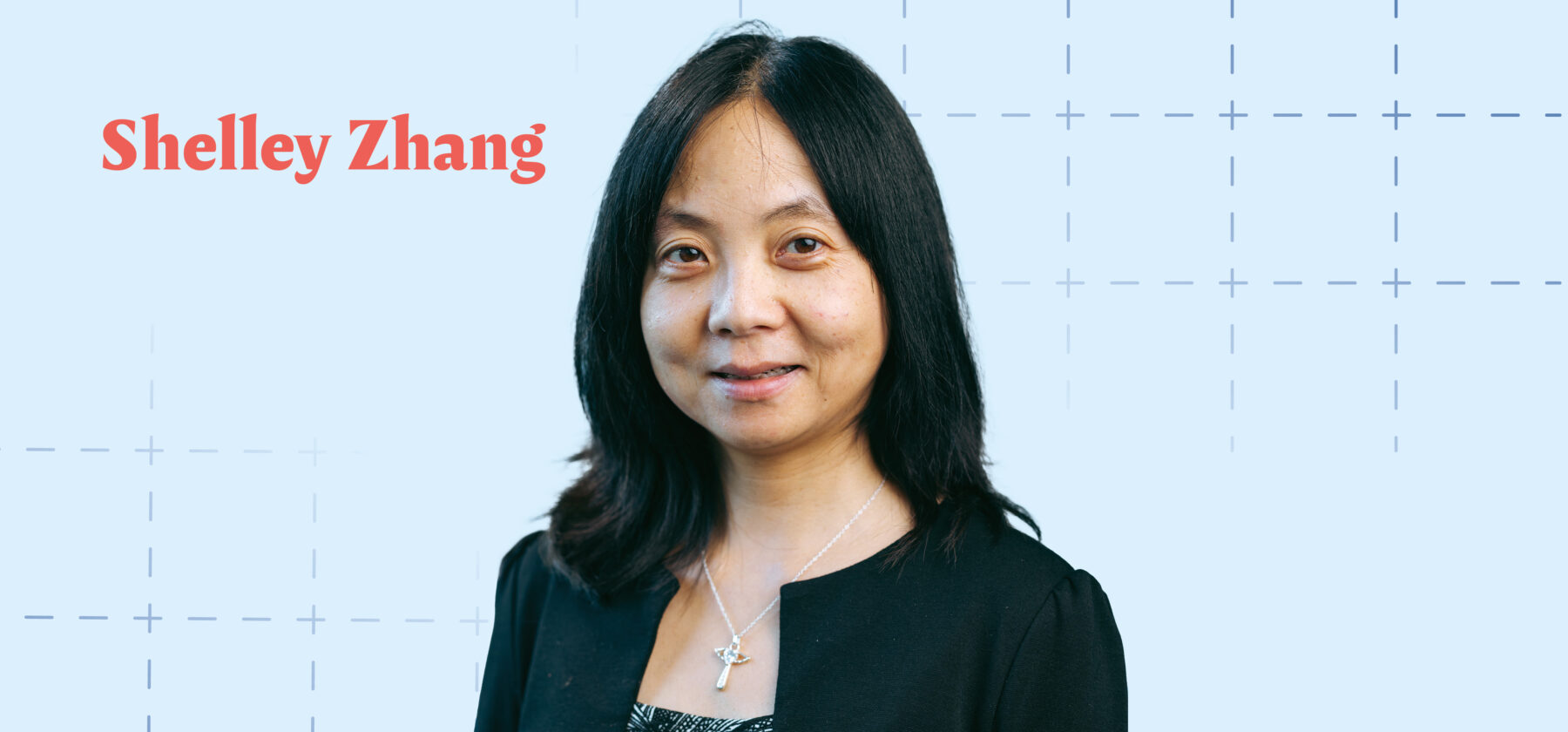Q&A with New Faculty: Shelley Zhang
A version of this article originally appeared in the spring 2024 issue of STILLPOINT magazine.
As a professor of computer science, Shelley Zhang’s research focuses on the cutting-edge technologies of artificial intelligence (AI), intelligent agent technologies and multi-agent systems. She has received grant funding from the federal Office of Naval Research and the Defense Advanced Research Projects Agency. Her Ph.D. is from the University of Massachusetts at Amherst, and prior to arriving at Gordon she taught at University of Massachusetts at Dartmouth.
STILLPOINT: Can you describe your research in very basic terms for those of us who don’t know much about computer science? What are the practical applications of your work?
Shelley Zhang: My research is broadly in AI and creating complex systems to solve problems, which we call multi-agent systems. Basically, you have multiple intelligent systems we call agents; how will they work together in a team setting or work in collaboration with each other? There are many different applications: supply chains; smart health systems that help people make decisions about their health; or defense, where you have multiple unmanned vehicles or airplanes or underwater vehicles that need to collaborate to accomplish missions.
SP: AI is in the news a lot, and people are very curious about it. How do you think AI will increasingly impact our daily lives?
SZ: AI already has a lot of applications. For example, Chat GPT is a powerful language conversation system. What is behind that is a big system based on machine learning to deliver results to humans in a very user-friendly interface. Even before that, AI has been used in a lot of areas of our daily lives. We just don’t notice! For example, recommendation systems in online shopping or to recommend movies are part of AI. There’s just too many to mention! AI may come with different names, but it’s already here. I believe AI will actually make our daily life more convenient and also make our jobs more efficient.
SP: One of the big concerns about AI is the ethics around it. As you’re training young Christian computer scientists, how do you help them think about the ethics of AI and how their faith might influence that?
SZ: Yes, that’s very important and raises concerns. When people are trying to create AI, we must, as Christians, understand there is a God above us, and God created human beings in his image. So as human beings we are unique, and our value cannot be replaced by any created system, no matter how smart. So anything AI would do or will do must yield to human value, which comes from God. For example, there are proposals to build autonomous soldiers to go to the front lines and kill in war. The argument would be, you could save the life of a real soldier, but there are concerns because the robot cannot make moral decisions. If a surprise happens, and you launch a weapon and give the command shot, and let’s say a child appears before your target, there’s just not enough time for you to withdraw the command. And the robot will not able to distinguish as a human soldier would do. That’s just one example, but there are so many things like this. I think as Christians we must approach this from the point of view to consider what is right from God’s viewpoint.
 The Bell
The Bell